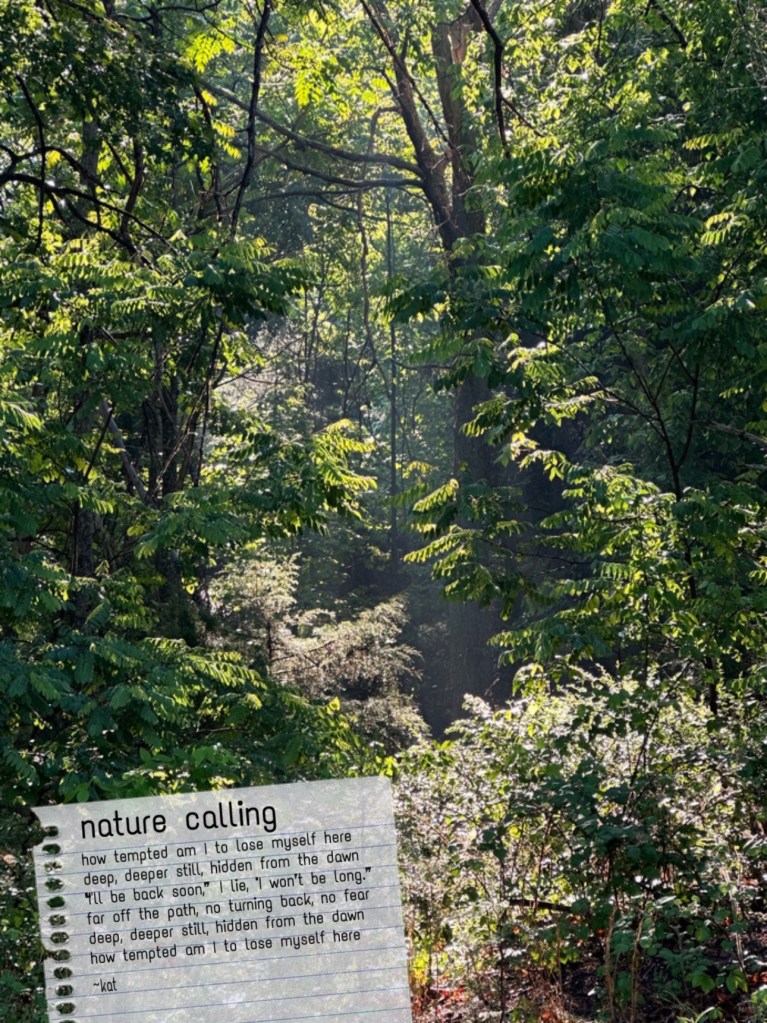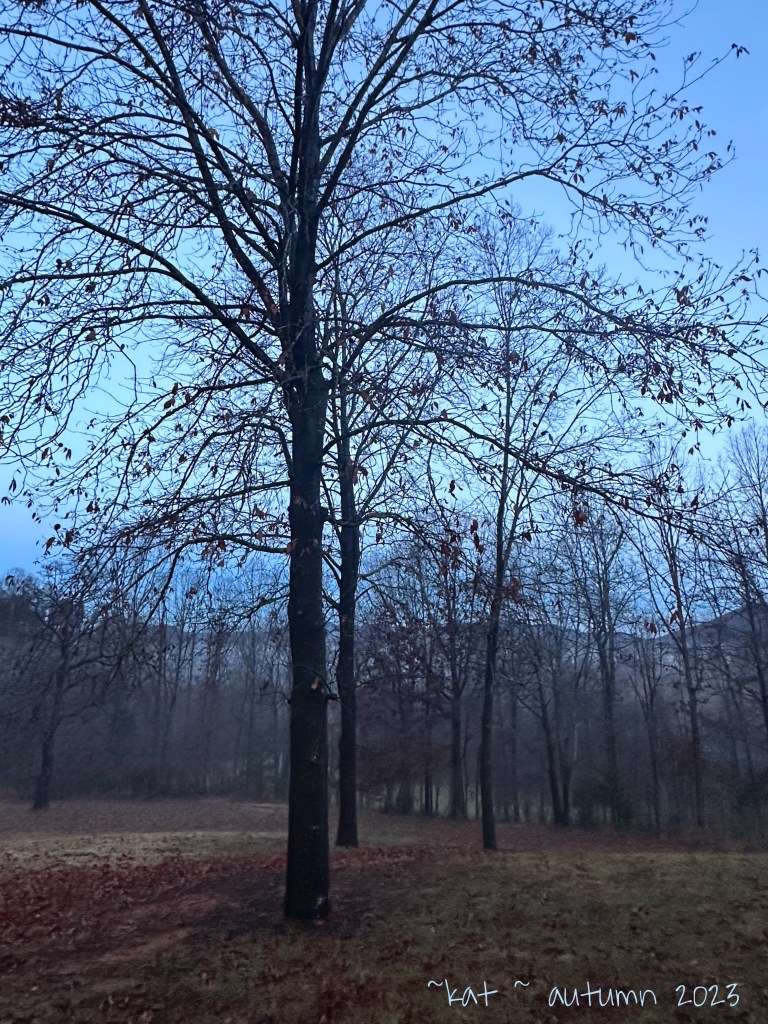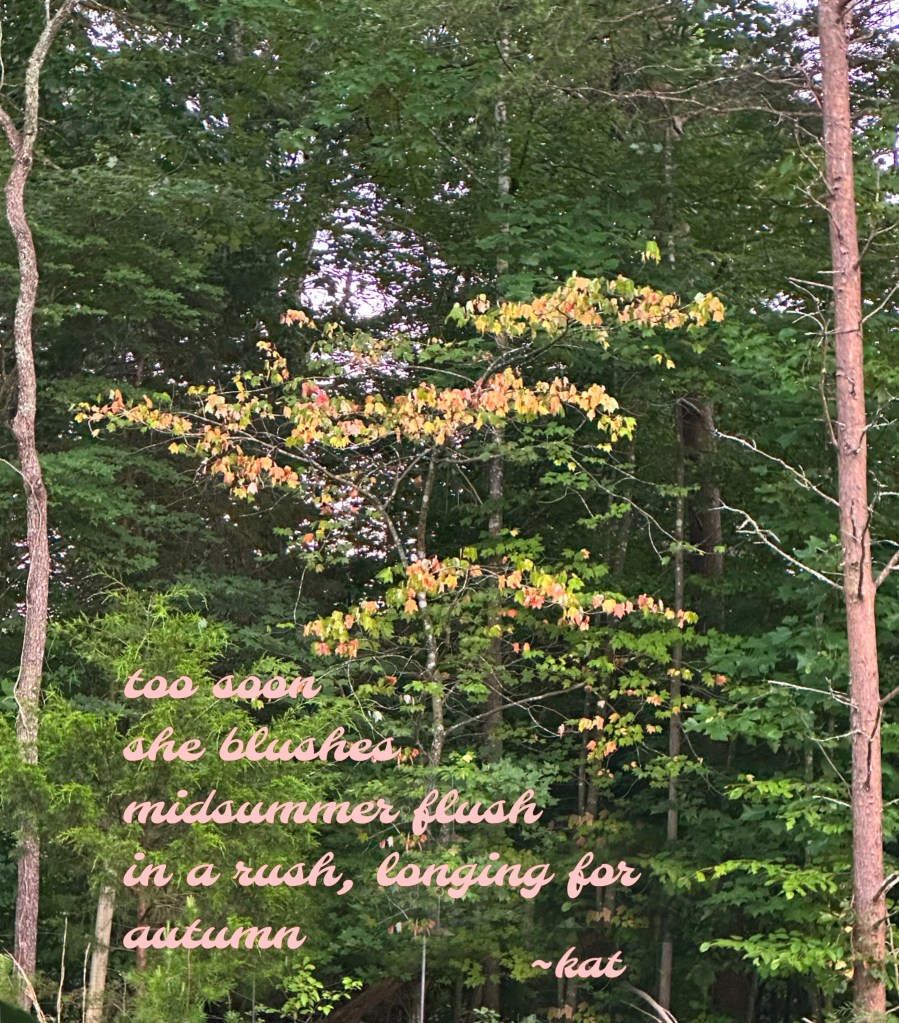
nature calling
how tempted am I to lose myself here
deep, deeper still, hidden from the dawn
“I’ll be back soon,” I lie, “I won’t be long.”
far off the path, no turning back, no fear
deep, deeper still, hidden from the dawn
how tempted am I to lose myself here
~kat
Poetry Form: the Biolet
The Biolet is a six line poem, and like the triolet, the first two lines are repeated as the last two lines, however in reverse. The rhyme scheme of the biolet thus can be expressed as ABbaBA (with the capital letters representing the repeated lines). The length of the lines can be in iambic tetrameter (8 syllables), iambic pentameter (10 syllables), iambic hexameter (12 syllables), or in unmetered lines of random lengths.









